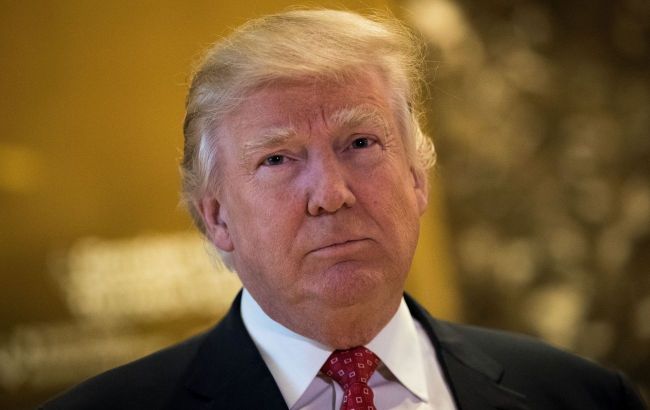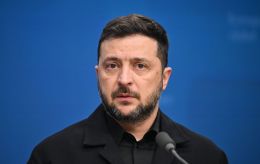Trump refuses to pressure Russia despite growing pushback in Congress - American expert
 Donald Trump (photo: Getty Images)
Donald Trump (photo: Getty Images)
CEO of Renew Democracy Initiative Uriel Epshtein, in a brief interview with RBC-Ukraine, explained the reasons behind Trump’s hesitancy regarding sanctions against Russia and how the US political establishment is responding to the actions of the American president.
Key questions:
- Why isn't Trump imposing sanctions on Russia?
- How is Trump's indecisiveness perceived in American political circles?
- Should we expect increased action from the US Congress on sanctions?
US President Donald Trump's efforts to end the Russia-Ukraine war are met with Putin's strong unwillingness to agree to a real ceasefire. At the same time, Trump outright refuses to apply pressure on Russia.
This was particularly evident in last week's phone calls between Trump and Putin, Zelenskyy, and European leaders. Before speaking with the Kremlin's leader, Trump had shown readiness to impose sanctions, but after the conversation, he changed his stance completely and stated that Putin was "ready for negotiations."
According to American media, this turn of events shocked European leaders and also surprised many American politicians.
And it's not just the opposition Democrats. A bill has been introduced in the US Senate aiming to increase pressure on Russia. Its authors, Republican Lindsey Graham and Democrat Richard Blumenthal propose a 500% tariff on countries that assist Russia. CEO of the American nonprofit Renew Democracy Initiative, Uriel Epshtein, spoke to RBC-Ukraine in a brief interview about the prospects of this bill and the general attitude of the American political class toward Trump’s indecisiveness.
– What is behind Trump's hesitation to impose sanctions against Russia?
– We can't get inside Trump's head, and he has certainly flip-flopped a fair bit over the past month or two, from his massive, public fight with Zelenskyy at the White House to their apparent reconciliation on the sidelines of the papal funeral to airing his frustrations against Putin on social media. But to the extent we can draw a line through the scatter plot of Trump's foreign policy, his latest signal – that he would not join the European countries in imposing new sanctions on Russia – is consistent with his worldview, which tends to be more sympathetic to Moscow than to Kyiv
– What are the views among Republicans and Democrats in Congress regarding how Trump conducts negotiations with Russia and Ukraine, and his refusal to impose sanctions on Russia?
– On balance, it's what you would expect: Democrats are critical of Trump, while Republicans, at best, keep silent. But there are exceptions on the Republican side.
Take, for example, Don Bacon, who is a Republican member of Congress from Nebraska, a red state in the Midwest. Congressman Bacon has been a stalwart champion for Ukraine on Capitol Hill and he has not shied away from calling out President Trump when necessary and being quite blunt in doing so. I recall that Bacon said of Trump: "When he says he doesn't know who started the war – that's total baloney. Putin murdered every one of his opponents. And we're calling Zelenskyy a dictator?" He says these things because Ukraine's cause is in America's national interest and it's popular with the American people.
We'll see if more Republicans can recognize that and muster the courage to break with a President of their own party. We should encourage them to do so.
– A bill to impose sanctions on Russia, introduced by Lindsey Graham, has been registered in the Senate. What are its current prospects?
– The legislation, which was introduced by Democratic Senator Richard Blumenthal as well, should pass the Senate, where it has overwhelming, bipartisan support. There's a House version as well, which should also pass. Let's see if President Trump signs it into law.
– Why does the Democratic Party, in general, remain so passive in criticizing Trump, particularly regarding his actions on the Ukraine-Russia front?
– It depends on what you mean by passive, but, in general, the Democrats are still reeling from their election loss in November. The party is unpopular and disorganized and wanting for leadership.

